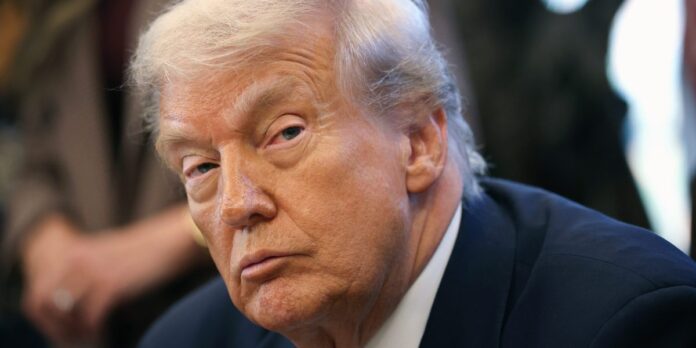The Congressional Budget Office (CBO) has released new projections showing that recent rollbacks of President Donald Trump’s aggressive tariff strategy have wiped out roughly $800 billion in expected debt reduction over the next decade. This revision comes even as tariffs remain a central point of debate in U.S. fiscal policy, particularly with the national debt exceeding $38 trillion and deficit reduction an urgent concern for lawmakers and economists alike.
According to the CBO’s updated baseline budget projections, the expected impact of tariff policy on U.S. deficits has fallen sharply since its last projections on tariff revenue in August. At that point, an effective tariff rate of 20.5% implied future deficit reduction of $3.3 trillion through 2035, and about $700 billion in interest savings.
However, since June, the scope and magnitude of these tariffs have shifted significantly. The administration’s decision to pull back or soften tariffs on a range of imports—particularly with key trading partners like China and the European Union—in response to mounting trade tensions and retaliatory measures has dramatically altered the fiscal outlook. The CBO now estimates that the resulting fiscal benefits of tariffs have been substantially eroded, as an effective tariff rate of 16.5% implies $2.5 trillion in deficit reduction and $500 billion in interest savings.
Political and economic forces drive shifts
The CBO points out that these substantial debt-reduction projections are highly sensitive to the fate of tariff policy—a policy area marked by political volatility and economic uncertainty. Trump initially touted tariffs as a tool to bring down the ballooning federal debt and, as recently as August, claimed that the policies would generate revenue far exceeding government projections.
The CBO calculated reduced tariffs from five separate announcements with various trading partners, announced between early September and early November. They consisted of tweaks to the agreement with Japan, with the EU, on auto vehicles and parts, with India, and with China. The CBO didn’t even include another pending tariff reduction important to Americans’ pocketbooks.
After stinging off-year election losses for Republicans in early November, when Democrats won 18 out of 18 races nationwide in which they were on the ballot, Trump moved in the middle of the month to scrap several tariffs linked to affordability concerns. “We just did a little bit of a rollback on some foods like coffee,” Trump told reporters aboard Air Force One, hours after the tariff rollback was announced. Trump had signed an executive order hours earlier, removing tariffs on tea, fruit juice, cocoa, spices, bananas, oranges, tomatoes, and certain fertilizers.
At the same time, Trump has struggled to admit that Democrats’ affordability arguments are real. The day after his tariff rollback, he said on social media that “Affordability is a lie when used by the Dems. It is a complete CON JOB. Thanksgiving costs are 25% lower this year than last, under Crooked Joe! We are the Party of Affordability!” That seemed to be a reference to a particular Walmart meal deal that has half as many items as 2024.
Stubborn debt and lingering risks
The erosion of tariff-driven deficit reduction comes amid worsening Congressional gridlock over broader fiscal policy. The Treasury Department reports the U.S. national debt currently exceeds $38 trillion, a figure that continues to grow despite years of political promises to rein it in. The CBO notes that even the most ambitious tariff projections would have barely dented the debt’s steep trajectory—but now, even those incremental benefits are slipping away.
Economists caution that while tariffs can generate significant government revenue in the short term, their wider economic effects—such as higher consumer prices, supply chain disruptions, and lower growth—could ultimately offset the initial fiscal gains. Indeed, some independent analysts contend that the CBO’s calculations may not fully account for longer-term economic headwinds caused by ongoing trade disputes.


